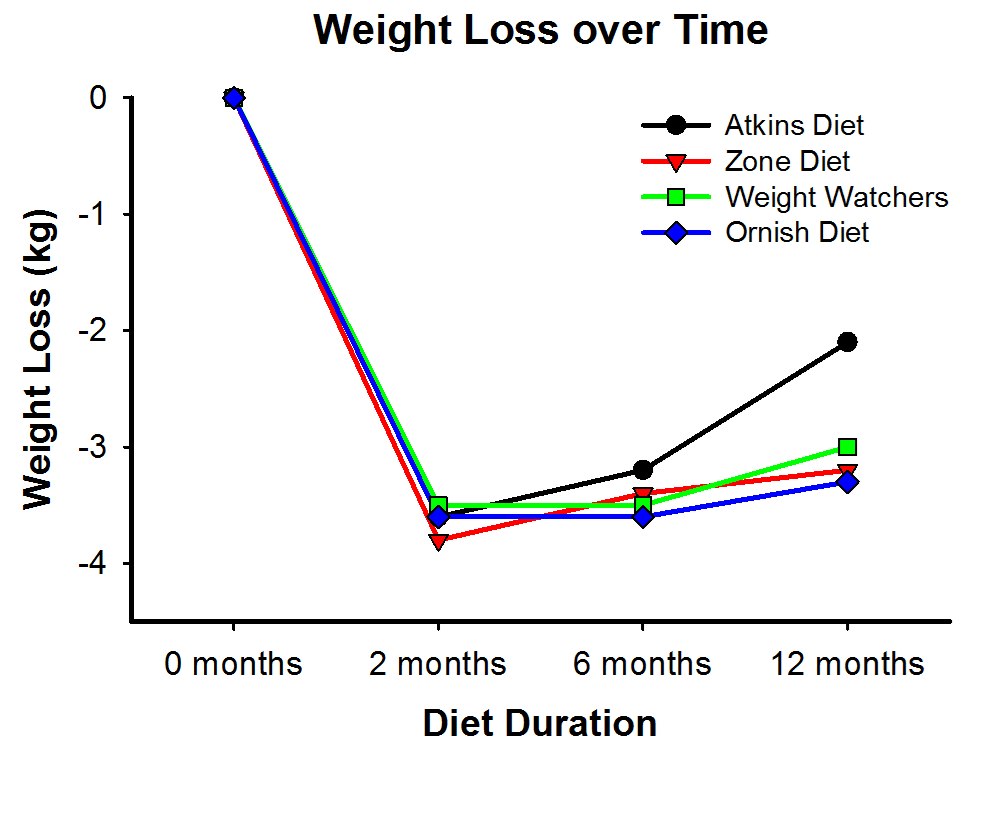Every type of diet has its supporters: are you a low-fat, high-protein, low-carb, or Ketogenic supporter? I don’t have a problem with any of these diet types but what I do have a problem with is when people become so adamant that their diet type is “the best diet to lose weight” and vehemently oppose other diets to lose weight, viewing them (with their noses up) as completely inferior. Why can’t both parties be right?
The intense debate over whether a high-protein diet is superior to, for example, a low-fat diet isn’t unique to the health & wellness industry. Even in academic circles, there are numerous experts that endorse one diet over the other and set up academic studies to prove that the diet they are backing is superior to all other diets for weight loss.
But, do you know what diet is truly superior to ALL THE OTHER DIETS?
It’s the (INSERT YOUR NAME HERE) diet! That’s right, it’s your diet. And this isn’t because your body handles carbohydrates and fats differently than another person or that there is some unique dietary mixture of fats, carbohydrates, and proteins that will give you the best results. For the most part, your body handles fats, carbohydrates, and proteins no differently than someone else of your age, gender, and body mass index.
The diet that you can stick with long term, i.e., your diet, is the BEST WEIGHT LOSS diet, if weight loss is in fact your goal.
It doesn’t matter how many detoxes, cleanses, fasts, or fixes you go on, if you can’t maintain those dietary patterns, what’s the point? Unless you like yo-yo dieting and weight cycling you should modify your existing dietary habits to be healthy rather than continually adopting and deserting 180-degree dietary habit changes that leave you in a perpetual dietary spin cycle.
As I have repeatedly said and the data have shown (1, 2), one diet is not superior to another diet for sustained weight loss.
The longer you are on “a diet” the less strictly you adhere to that diet and the less weight you lose, partially as a result of not following the diet quite as closely.
Now, if you are trying to reach a scientific, theoretical, thermodynamically supported conclusion, one might be able to say that a high-protein diet is superior to other diet types in supporting weight loss due to protein’s increased calorie burning thermic effect of breaking down protein after a meal; however, this is also highly debatable (3).
Although I haven’t seen this approach employed in the scientific literature, I would love to see a study where people cycle on and off different diet types in succession. Atkins for 2 months, Paleo for 2 months, low-fat for 2 months, etc. If you only have to maintain “a diet” for 2 months at a time, would you be able to sustain your dietary adherence and your weight loss over time? I don’t know the answer to that but I would like to see it tried.
The amount of weight lost during dieting diminishes over time and is highly correlated with dietary adherence (1).
Dietary Adherence (dietary strictness) decreases over the course of time and is directly related to the amount of weight lost on a diet (1).
Another option and one that I am in full support of is to take the foods and meals you currently eat and tweak them (recipe modification, portion control, elimination of certain “treats”) to come up with a sustainable diet that you can maintain over the long term! In a nutshell, this is what the (INSERT YOUR NAME HERE) diet might look like:
1) Don’t eat unnecessary amounts of fat (example: lean beef versus fatty beef)
2) Don’t eat unnecessary amounts of refined carbohydrates (example: stick to one snack/week and not five)
3) Eat a mixed, balanced diet and protein will take care of itself.
Why do we have to sacrifice one macronutrient at the expense of the others? Some of the meals we eat can be low-fat high-carbohydrate (spaghetti and marinara sauce), high-protein low-carbohydrate (steak and broccoli), or high-fat low-carbohydrate (asparagus wrapped in bacon). Let’s just cut to the chase. You can eat low-fat high-carbohydrate, high-protein low-carbohydrate or high-fat low-carbohydrate at alternating meals for breakfast, lunch, and dinner each day of the week and still lose weight provided you maintain a negative energy balance.
What is the best diet to lose weight? It’s the (INSERT YOUR NAME HERE) diet! And true to the health & wellness industry and academic circles, I’m adamant about that!!!
Todd M. Weber PhD, MS, RD
References:
- Dansinger ML, Gleason JA, Griffith JL, Selker HP, Schaefer EJ. Comparison of the Atkins, Ornish, Weight Watchers, and Zone diets for weight loss and heart disease risk reduction: a randomized trial. JAMA : the journal of the American Medical Association. 2005;293(1):43-53.
- Sacks FM, Bray GA, Carey VJ, et al. Comparison of weight-loss diets with different compositions of fat, protein, and carbohydrates. The New England journal of medicine. 2009;360(9):859-873.
- Vergnaud AC, Norat T, Mouw T, et al. Macronutrient composition of the diet and prospective weight change in participants of the EPIC-PANACEA study. PloS one. 2013;8(3):e57300.

